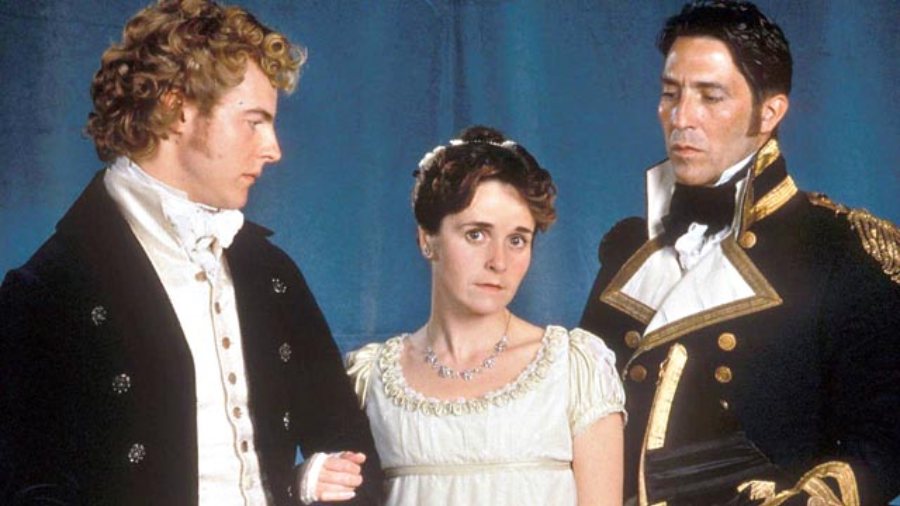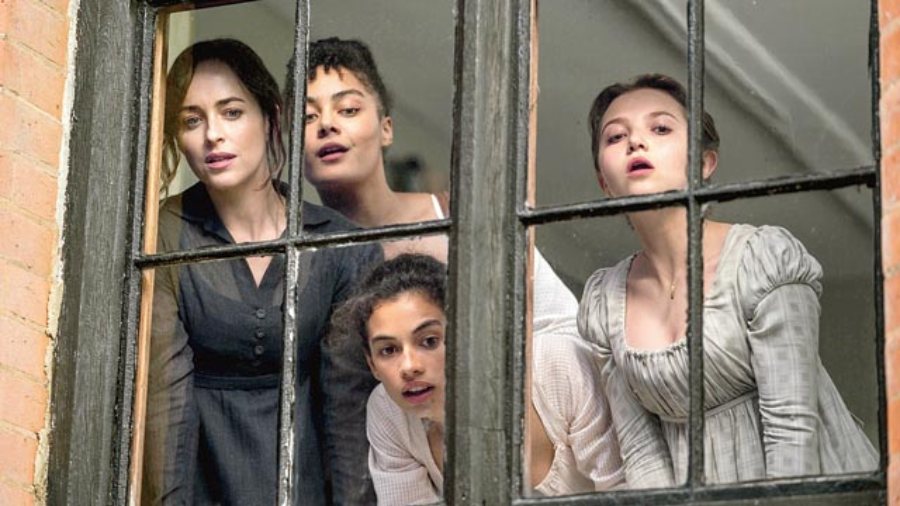The new Netflix feature Persuasion is less a Jane Austen adaptation and more a Fleabag wannabe. As a Jane Austen loyalist, no other Austen adaptation has felt so vehemently un-Austen like.
Persuasion, the last novel Austen wrote, and published six months after her death, has over the years been considered her most accomplished work. At the centre of it is the shy, reserved Anne Elliot, present in the background of everything that surrounds her. She speaks less, mostly listens and is highly observant of the people around her. She is seeking reconciliation with Captain Wentworth, who she was persuaded to turn down eight years ago, because of lack of rank and means to support a family.
Austen builds her step by step, as a woman who has to break through her own self-understanding as a manner in itself. Persuasion is Austen at her most mature and experimental, devoid of feisty drama and extravagant narrative demands. Yet, in the new adaptation, directed by Carrie Cracknell, it becomes an insecure, incoherent mess — swinging from satire to drama without any restraint.
Dakota Johnson stars as the new Anne Elliot, and given the actor’s charming screen presence that has saved several movies from being complete misfires, you might think the same. Yet, Johnson can do as much as she is told to do, in a script by Ronn Bass and Alice Victoria Winslow that does not understand Austen’s sensitivity and approach to interior turmoil.
ANNE vs ELIZABETH
When we first meet Johnson as Anne, she describes herself as “single and thriving”. Under the given circumstance and setting, it does not sound as an inside joke, but feels painfully desperate to be one. Is she trying to be feisty? Is she supposed to represent a modern soul trapped inside another timeline altogether? Or is she trying to be Elizabeth Bennet? If one were to choose between the two texts on account of which one is more adaptable, Pride and Prejudice certainly makes for an agreeable option.
Sure, many prefer the rebellious Elizabeth Bennet of Pride and Prejudice over Anne, and rightly so. Anne offers herself to be persuaded,whereas Elizabeth is firm and adamant — ever ready with a comeback. The 2005 version, with Keira Knightley as Elizabeth Bennet, makes for a brilliant adaptation, also because it does not try to inject anything additional or twist the narrative in any way. It remains largely faithful and adequately cohesive... plus gleefully romantic. Who can forget Mr Darcy’s proposal to Elizabeth in the rain? The characters live and breathe as they did in their times. They are not exaggerations.
Then there is the new Persuasion, where Mrs Penelope Clay delivers the line, “It is often said if you’re a five in London, you’re a 10 in Bath.” Jane Austen would scream in horror. That is what works against Persuasion, for it tries, again and again, to inject a modern sensibility amidst a restrained, controlled narrative. Anne Elliot would never turn into someone consistently making a fool of herself by shouting Wentworth from the window or by goofing around with children to show her love. She is supposed to be inert and silent, not confident and cynical. Here, by constantly breaking the fourth wall and looking directly at the screen — at us — Anne is trying to be relatable. She even laments about Wentworth, “Now we’re strangers. Worse than strangers, we’re exes.” Big NO.

Phoebe Waller-Bridge in Fleabag
FLEABAG? NOT!
Persuasion tries to be Fleabag but it fails to understand both these texts are fundamentally different in their teatment and setting. Fleabag works because it feels so unafraid to take ownership of loss, carefully dissecting rage, desire and feminism through an unlikable yet relatable woman.
Austen’s work, on the other hand, does not directly confront but creates a shadow through a woman situated in her own times, slowly realising her worth. Fleabag is falling apart, whereas Anne is building herself. Fleabag is careless, Anne is gentle. As difficult it is to deal with a gentle character on screen, where the looks and silences mean much more than a monologue, the last thing one can do is alter the character arc completely.
One such film, though not a Jane Austen adaptation, that deals with a gentle and kind person like Anne and does so with much better conviction is Mike Leigh’s Happy Go Lucky. Starring the sublime Sally Hawkins as an elementary school teacher Poppy, it focuses on the way she is perceived by her surroundings because of her gentleness. She chooses to be kind and gentle in the face of simmering rage. Coincidentally, Hawkins also played Anne Elliot in the 2007 film Persuasion that was way more considerate to the text.

The best adaptation of Persuasion belongs to the 1995 film, which starred Amanda Root as Anne and Ciaran Hinds as Captain Wentworth. Directed by Roger Michell, it understood the characters’ internal struggles through less dialogue and more thematic control
But the best adaptation of Persuasion belongs to the 1995 film, which starred Amanda Root as Anne, and Ciaran Hinds as Captain Wentworth. Directed by Roger Michell, it understood the characters’ internal struggles through less dialogue and more thematic control.
That Austen’s work still manages to be relevant is a testament to her artistry. There is no stopping anyone from making newer adaptations of beloved classics, and yet as a Jane Austen fanboy, one would only want these adaptations to at least stay faithful to the intention, if not the ideal. Be experimental, take risks, but not at the expense of the character altogether. Simply put, by all means, do not mean to spice it up.











